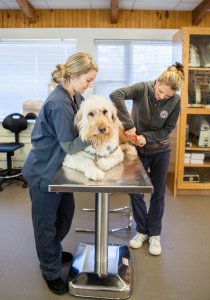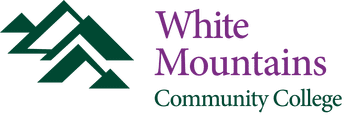WMCC Provides Access for Lifelong Learning
By Charles Lloyd, president of White Mountains Community College
Learning is a lifelong adventure that should continue no matter where we are in life. Attending college is a personal and professional decision based on various needs but there is always a common goal and result: a better life. For those who are interested in starting a new career, learning new skills for a promotion or a side-job, or have personal goals to enhance daily life, community college is intentionally structured to make taking the next step as easy as possible. At White Mountains Community College (WMCC), we’re constantly trying to make it easier by opening our doors physically and virtually year-round in new ways to increase access and work around the busy and demanding schedules many people maintain.

There can be a common misconception that starting college must be done in the fall. This can be true for those who start down the path of a four-year college or university where, typically, a single cohort of students will begin in September. Once the fall enrollment deadline has passed, waiting another semester or longer has been the traditional next step. That is not the case at the Community College System of New Hampshire (CCSNH). Up here in the North Country, WMCC has new class offerings that begin throughout the year. While we do have semesters that start during the typical September and January timeframes, missing those deadlines will not shoehorn your decision to begin working towards a degree, certificate, badge or non-credit training option. Late-start course registration is offered mid-semester, non-credit training begins at various times throughout the year and of course, there are summer offerings. This makes it easy to begin college when it’s right for you at any time of year.
WMCC offers associate degrees and professional certificates within 42 academic programs, along with training options to enter a career across multiple industries, virtually all of which are in need of skilled employees. An associate degree offers in-depth general education accompanying core program work. A certificate can be obtained alongside a degree or as a standalone credential that requires fewer credits and is focused on a specific skill, job or career niche.

For instance, we offer an Associate of Science in Culinary Arts, and a certificate in Baking and Pastry Arts. Certificates have become popular as they get people “job ready” faster and can be the type of credential necessary for certain professions such as a massage therapist or veterinary assistant.
Other credentials that are making an impact in employment qualifications and hiring decisions are badges and non-credit courses for training and upskilling needs. These too have been growing in popularity as they can be a quick pathway to a promotion. With many industries and careers in high demand in the North Country, we are hearing from employers that the acceptance of certificates, badges and non-credit learning is increasingly recognized as valuable in many professions.
Starting earlier this year, CCSNH and WMCC began issuing professional badges. Badges are portable records of completion and indicators of success that are rendered as digital icons and can be included in online profiles, resumes and other displays of achievement. Across CCSNH’s seven colleges, more than 1,000 badges have been awarded to students who completed programs through the colleges’ Business and Training Centers (BTC) in the past two years. BTCs also offer many non-credit offerings that enable students and employees to upskill for a job or promotion, and many times an employer is willing to cover the expenses. As with degrees, certificates and badges, non-credit course offerings are available in a wide variety of academic focus areas to help students reach their educational and career goals.

Community college is accessible, flexible and adaptable to accommodate a variety of lifestyles. WMCC offers classes during the day, evening and on the weekends, fitting busy schedules around work, family and the many other commitments in our daily life. The learning methods available to students has never been more convenient, whether it is in-person at our main campus in Berlin or academic centers in Littleton and North Conway, fully online or a hybrid combination of both. We all need flexibility and we have adapted our classes to meet life’s demands.
These examples of flexibility, convenience and accessibility make it a great time to start college and get set on a path towards success.

